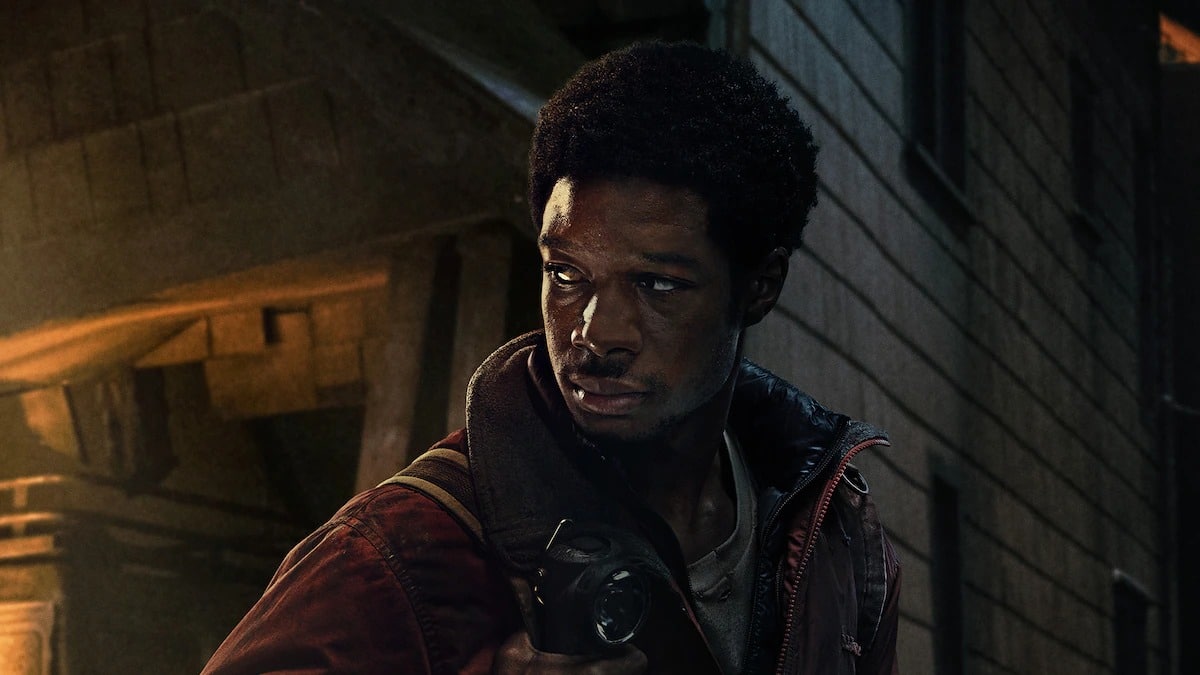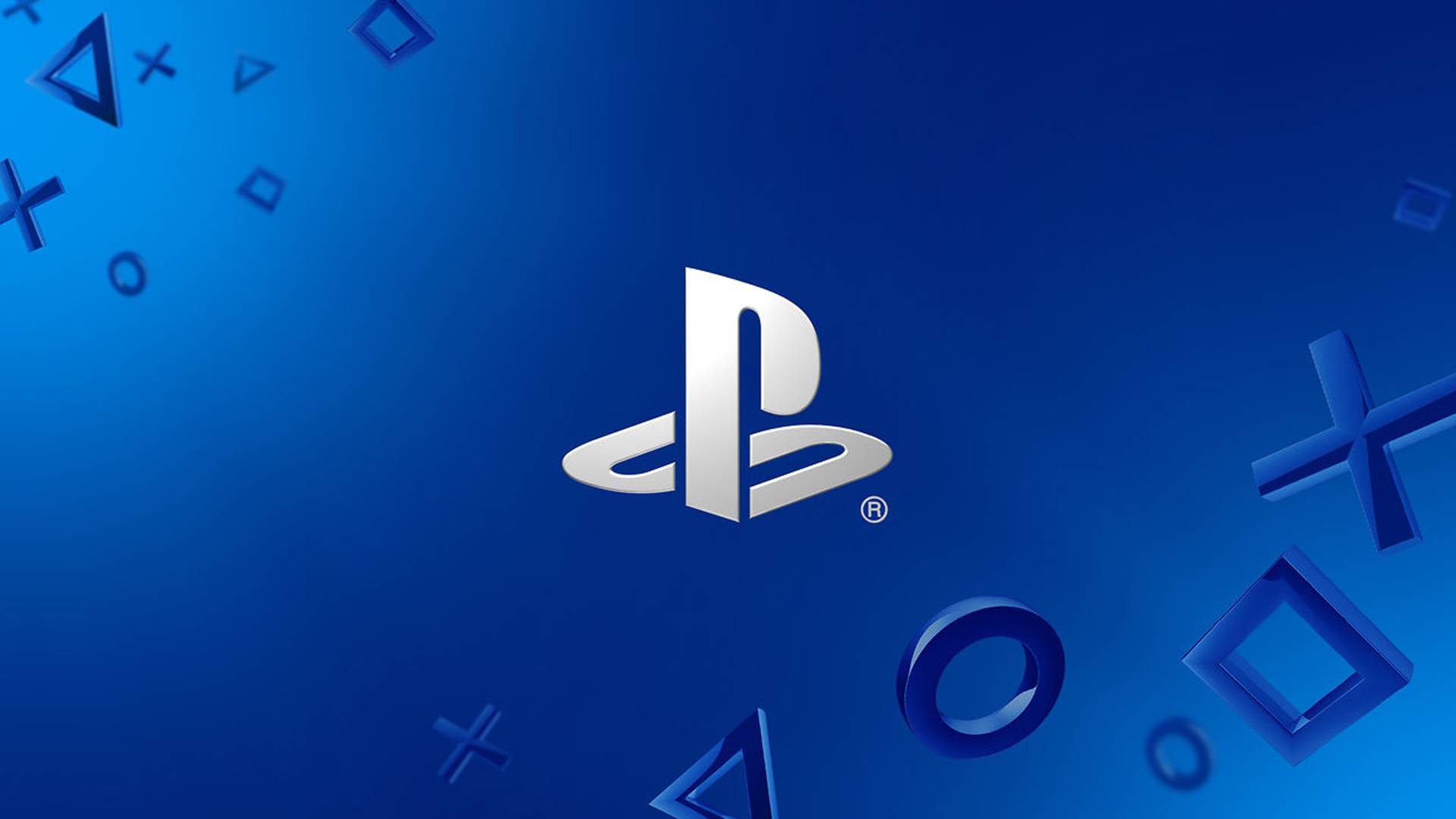HBO’s adaptation of The Last of Us explores a myriad of complex themes and emotions, expanding on ideologies first presented in the video game franchise the series is adapted from, whilst introducing new story arcs and refreshing glimpses into some of the lesser-seen aspects of post-apocalyptic life.
GamesHub spoke with two of the show’s prominent supporting actors Lamar Johnson (Henry), and Jeffrey Pierce (Perry in the HBO adaptation & Tommy in The Last of Us Part I & II) in a roundtable interview. They discussed the themes and character portrayals presented in the HBO series, how they prepared for their roles, and their thoughts on some of the series’ emotionally impactful moments.
- On and off-screen relationships between the cast
- Character dynamics and narrative similarities in The Last of Us HBO
- How The Last of Us HBO paints the enemy in a different light
- Exploring villainhood and justice in The Last of Us HBO
- Deviations from the games and respect to the source material
On and off-screen relationships between the cast
Johnson portrays Henry in The Last of Us HBO – a character introduced in the first game, who is accompanying and protecting his younger brother Sam (played by Keivonn Woodard in the HBO adaptation). Johnson said this relationship was one of the most essential factors when preparing for the role, saying:
‘The core of my preparation was establishing a relationship with [Keivonn Woodard]… because that is, that’s the story… that is Henry and Sam. So I wanted to make sure that our relationship and our connection, not only on set but off set, was strong and developing from the first day.’
Johnson also spoke to the importance of learning sign language for the first time, saying this helped the pair to communicate both on and off screen, as Woodard is also deaf in real life. Sam was not originally written as a deaf character in The Last of Us video games, and Series Showrunner and Creative Director of The Last of Us Part I & II Neil Druckmann spoke to this change during an interview with Washington Post Live, stating:
‘Some of the best storytelling sometimes in passive media in TV and film is scenes that don’t have any dialogue, and it is just about reading a person’s expression.’ He explained that many of the changes in Sam’s character he had discussed with Craig Mazin (Series Showrunner, Chernobyl) stemmed from conversations around using less dialogue, which made for more interesting and impactful narrative moments.
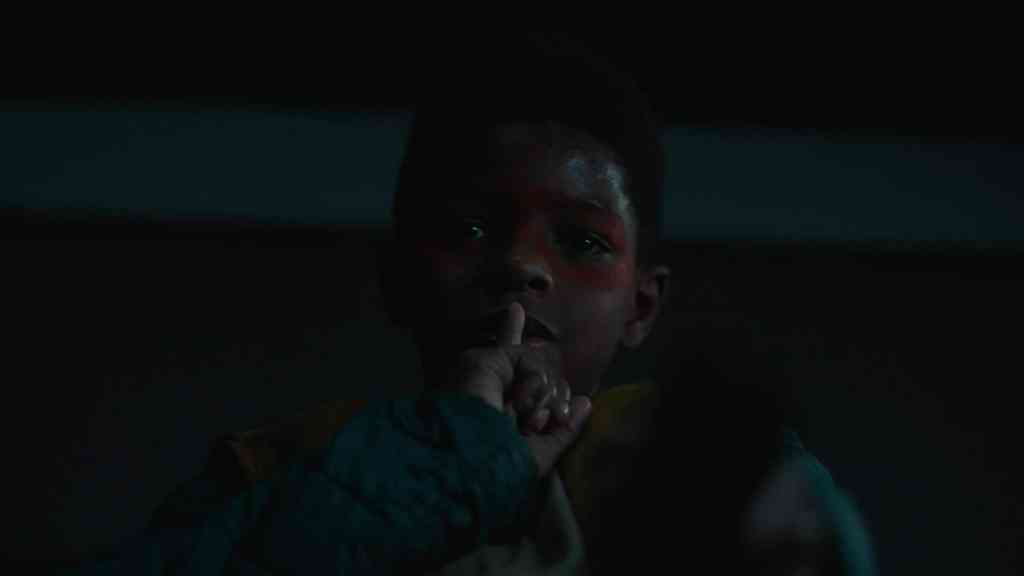
Pierce also delved into his working relationship with co-star Melanie Lynskey (Kathleen in the HBO adaptation), stating she was ‘absolutely magnetic as an actor’ which made for a seamless collaboration between the pair. Pierce said:
‘I don’t like to talk about acting with other actors, or even necessarily with the director – or [about the] process, or… the underlying themes. I like to come at it as an actor and just sort of like bring what I have, and find what’s there… as unspoken, as unarticulated as possible, so that we’re having an experience as opposed to thinking about it.’
‘I found that’s exactly what [Melanie] and I did. We never talked about [the character’s backstories]… we didn’t sort of get into that, we just had an experience together and that was… this sort of communion that you hope for as an artist.’
Character dynamics and narrative similarities in The Last of Us HBO
The narrative arcs within the world of The Last of Us are intensely emotionally driven, and Johnson touched on how the themes explored within Henry and Sam’s relationship were also present through other characters in the series.
Johnson referred to Henry as a protector who ‘internalises a lot of what he goes through’ in order to shield his younger brother from the grim realities of this world. He mentioned that similar to how Joel (Pedro Pascal) is a protector of Ellie (Bella Ramsey), ‘there’s already a mirror there and you can kind of already tell from that dynamic.’
He also spoke to the childlike innocence Henry uses as a strength by adorning Sam with a superhero-like persona, saying it was a way to repeatedly reinforce ‘security and confidence in Sam,’ as Johnson says, ‘superheroes survive, superheroes endure… and superheroes are looked up to.’
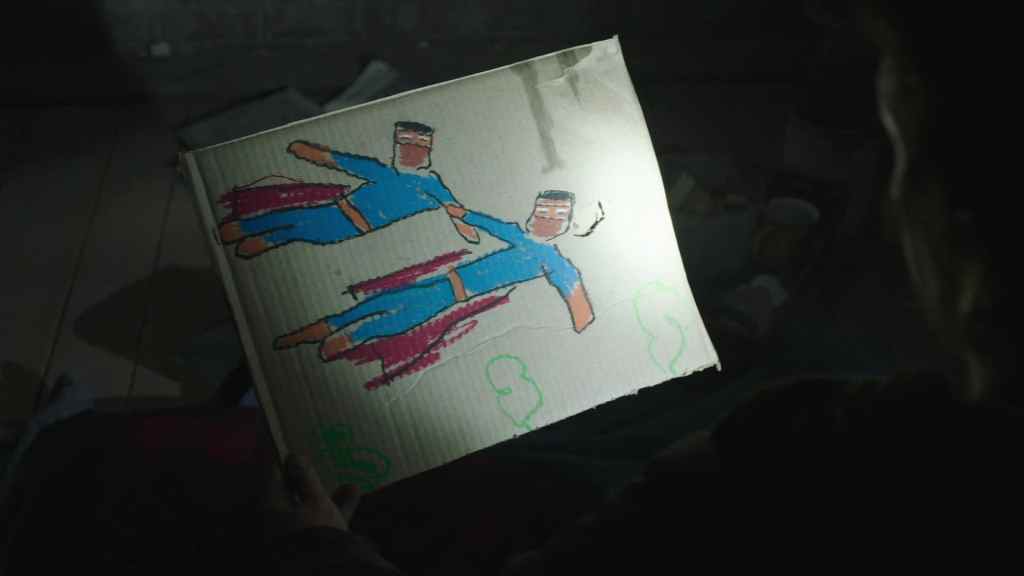
When asked about the dramatic conclusion of Episode 5, in which Henry shoots Sam after Sam becomes infected overnight, Johnson referred to this as a moment of pure ‘shock’ for Henry, and elaborated on Henry’s internal dialogue during that scene:
‘I think what motivated [Henry] to maybe point the gun at Joel was, “what if I’d never approached you to even help us, would we be in this situation? Could I have [gotten Henry and Sam to safety] by myself? Because with me approaching you now we’re here”… There’s so many things that are going through [Henry’s] mind. He doesn’t know how to react, so he’s just reacting.’
‘It’s kind of a callback to Bill and Frank’s episode… where Bill is [saying] “you are my purpose, you’re the reason why I was living and I have no purpose now that you’re not going to be living”… It’s kind of the same sentiment with Henry and Sam. Now that Sam’s not there, [Henry has] no purpose. [He] couldn’t see [himself] living in this world without him, so [he’s] going to join him.’
Johnson also touched on how his relationship with co-star Keivon Woodard impacted him while filming that scene, sharing:
‘That was a tough day. We shot that scene for most of the day so it was just very emotionally draining as well… Keivonn and I… we’d built such a great relationship leading up to that point so to see him that way was really tough.’
How The Last of Us HBO paints the enemy in a different light
Pierce spoke to the humanisation of one of the series’ main antagonists – Kansas City Militia resistance leader Kathleen. He elaborated on a scene in Episode 5 where Kathleen is recounting memories of her family with Perry as the two stand in her childhood bedroom, saying:
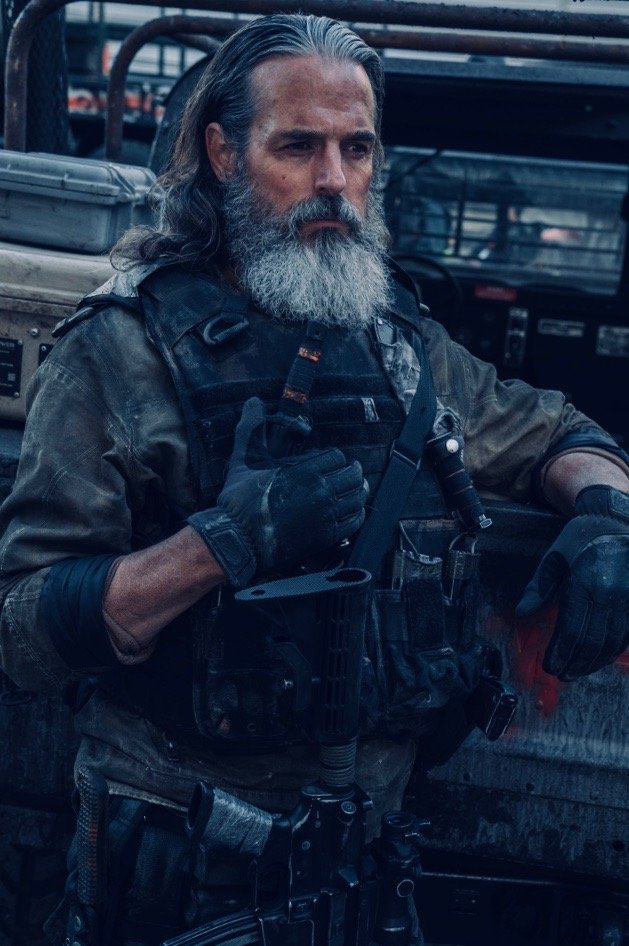
‘Perry’s humanity and [Kathleen’s] is revealed when we’re talking about her Mom, and there’s this… moment of lightness in there, that I find as an audience member [thinking] yeah, there’s so much history to these people. They’re in this incredibly intense moment in their lives, they have just overcome [their enemy] and they are taking righteous revenge… but underneath that there is a real sort of… affection and history and humanity to them that underlies.’
‘It’s a brief moment… it was not necessarily scripted that way and not necessarily directed that way, but [Lynskey and Pierce] both found that sort of moment of lightness… that sort of to me told… that’s why he would do anything for her. Because what’s underneath all the things that we’ve done… is that past and that bond.’
Expanding on Perry’s respect for Kathleen as the leader of their faction, Pierce said:
‘I think that [Kathleen] brings an intensity that he admires… I think that he’s willing to subvert his instincts to hers because… he may have taught everybody how to shoot and how to fight, [but] she’s the one who crafted the strategy overall to apply what he brought to the table. And so there’s a level of respect – and earned respect – between the two of them, that he’s willing to let her instincts lead.’
Exploring villainhood and justice in The Last of Us HBO
Some of the core themes within The Last of Us centre on moral ambiguities and the grey areas that are present in the decisions many of the characters in the series make. Developers and cast members from the original games have spoken to this extensively, reiterating the concept that nobody is inherently ‘good’ or ‘bad’, but are merely doing what they need to in order to survive within the confines of this world.
Pierce touched on this concept and how it relates to Perry’s sense of justice within the Kansas City Militia, explaining he had conceived a backstory for Perry which consisted of him joining the military after high school and advancing through the ranks to take part in top-tier operations. He added that as the US military would have been a lot harsher throughout the late nineties and early noughties, Perry would have taken part in a fair few heinous acts, adding that throughout his arc in the series,
‘He’s looking for purpose and he’s looking for a way to justify the things that he’s done, he’s looking to say… I am a good guy.’
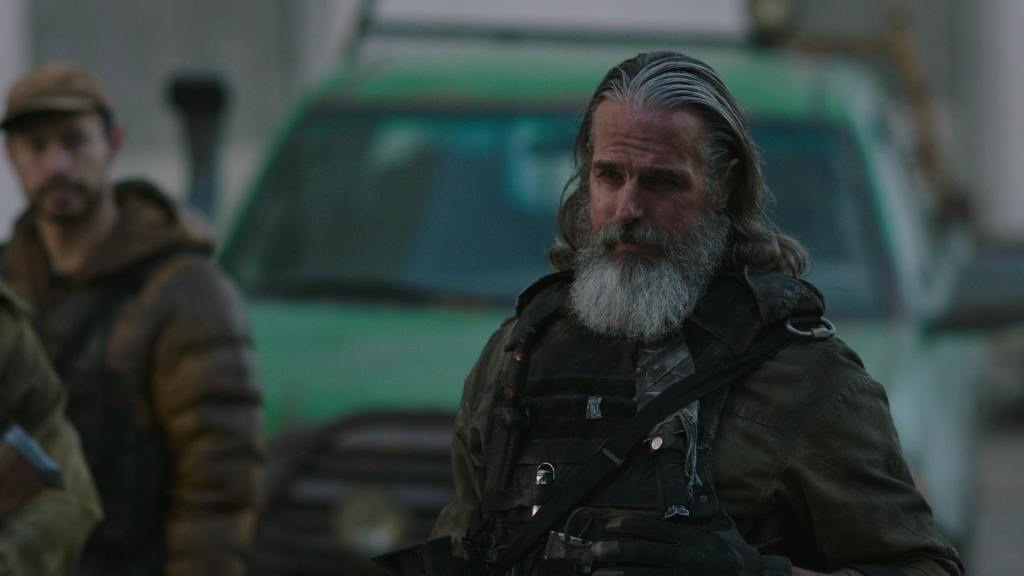
‘Every step along the way he’s maybe disproven that… and so for me, he found that purpose again when he got to Kansas City, and when he befriended Kathleen’s brother, and when he fell in love with Kathleen, and these are the things that have given him a reason to get up in the morning. People to protect, people to save, and a target for his violence that feels like he’s doing the right thing.’
Pierce explained that Perry’s death in Episode 5 also related back to this value of justice, saying:
‘He ends up sacrificing himself, I think the way that he would have wanted to… If he had to die, it’s how he would have chosen to die. I don’t know that, that makes him a hero, and I don’t know that it makes him a villain. I think it makes him someone who was really seeking purpose his entire life… and he got what he was after.’
‘It certainly points out the flaws in that system of thinking. If we think of ourselves as a hero, we really need to ask deeper questions about what we do.’
‘I don’t think that anybody ever thinks that they’re the bad guy… in the real world. I think that the worst things that are done, are done out of a sense of righteousness… and just cause… You can’t excuse those things that you do… if you’re not [feeling] like you’re acting righteously.’
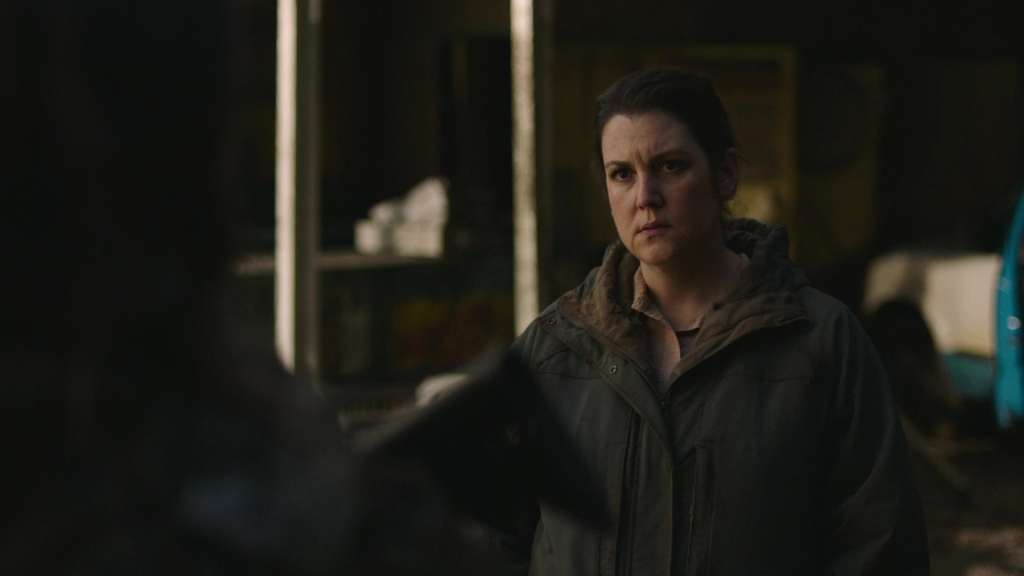
Johnson touched on the themes of morality when asked about Henry’s backstory – in which he had to give up the location of Kathleen’s brother Michael to FEDRA agents in order to obtain vital medication to treat Sam’s leukaemia diagnosis. Johnson said:
‘A lot of your moral choices are kind of questioned… you have to make tough decisions… and your morality in those decisions are sometimes questioned… I think ultimately just because [Henry’s] decision ultimately hurt someone, [he] believed that, that was a bad thing. Because you don’t necessarily need to hurt someone in order for you to get what it is that you need.’
‘I don’t think [Henry is] a ‘bad’ guy, but I think because he did what he did and he ultimately killed [Michael] in the process, that’s just weighing very [heavily] on him, and he didn’t want to be put in that position… to be responsible for someone’s life.’
Expanding on this particular plotline, Pierce added that the series presented a moral quandary to audiences that wasn’t depicted in the first game, saying:
‘I think in the game there’s never any indication that Henry and Sam might be culpable for why they’re being chased… there’s no sort of indication that what Henry did was just as bad and selfish and self centred as what anybody else does in the game… I think that it’s great that there’s a level of grey there, and a level of regret for him that he did what he did, but he couldn’t do anything else… it’ll hit an even deeper core [for the audience] if you have to ask… what would I do?’
‘Neil [Druckmann] and Craig [Mazin] are not shy about making us ask difficult questions of ourselves – as players in a game, or as audience members of a show… There’s no more important thing for art to do than force those questions upon us.’
Deviations from the games and respect to the source material
Johnson spoke about how he approached the character of Henry as someone who had already played The Last of Us, saying:
‘I was familiar with the game… so when I got the audition I knew exactly what it was. But I didn’t want to create a carbon copy of what the actor did in the game… I wanted to take that as a foundation and understand the arc and sort of where it goes, but in terms of my interpretation… I just wanted to try and be as present as possible with what I was given.’
‘Craig [Mazin] did a fantastic job with the script and… there are some changes, so I just wanted to… just kind of do service to what was on the page as much as possible, and sort of just be present with what I was given from [the other members in the cast].’
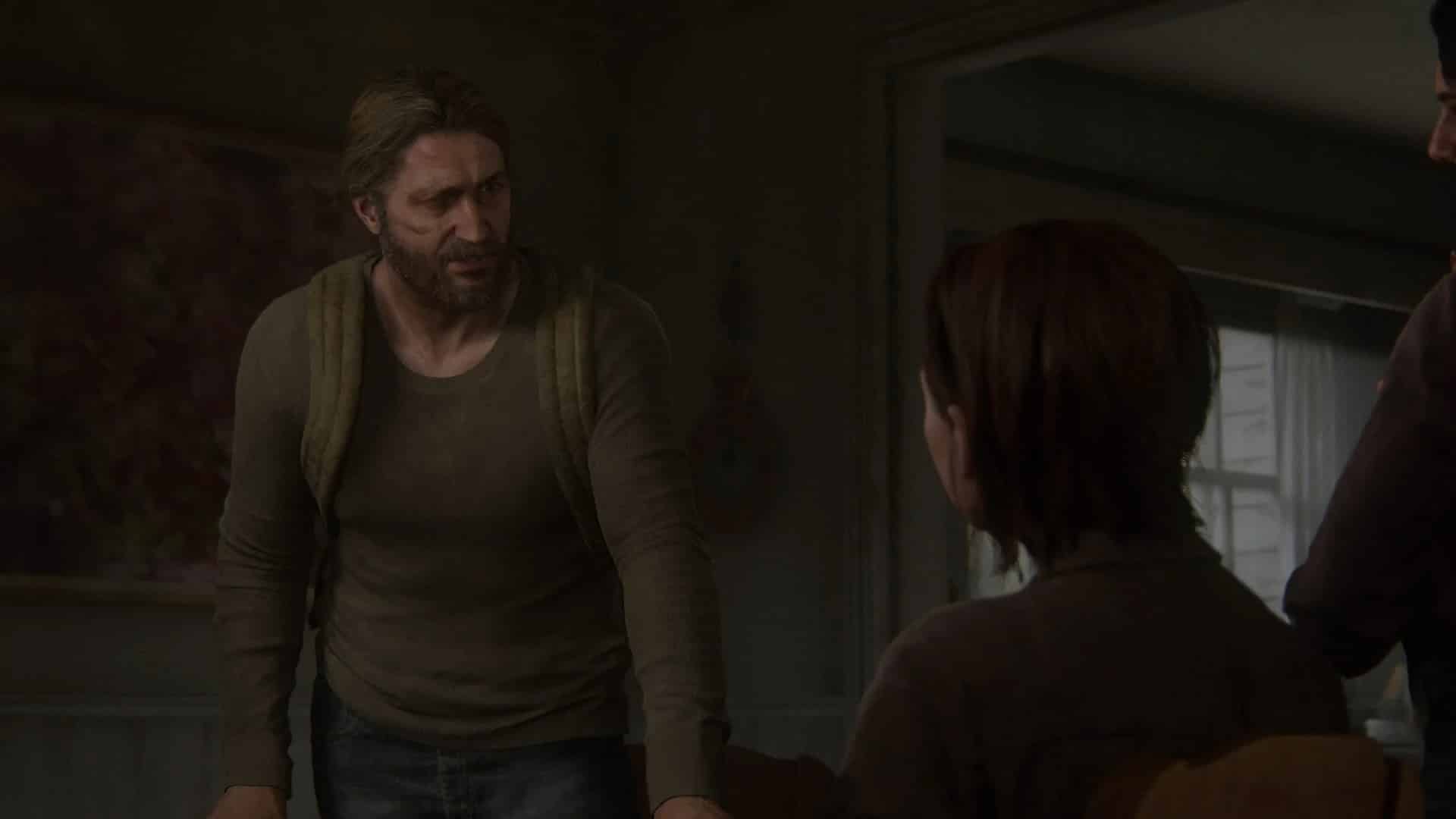
Pierce, having already portrayed Joel’s brother Tommy in The Last of Us Part I & II, returned to the adaptation in a brand new role, and spoke to the ‘triumph’ the original games had in the writing department, saying that ‘the quality of the dialogue, quality of the relationships, the care put into building the basic mythology of the story was everything that you would hope for in a great film or a great series.’
He added that the direction the HBO adaptation took Bill and Frank’s storyline – two characters depicted in the first game as having a much more hostile relationship – to instead be a tale told in a more heartfelt way, set up larger emotional beats for the rest of the series quite well and was ‘a stroke of genius.’
Both actors also spoke to how the efforts in set design contributed to their experience connecting to the source material, with Johnson saying:
‘It was very surreal… I was able to witness first-hand the game get brought to life in such amazing ways. The production design was some of the best that I’ve ever seen in my life… There were so many practical effects as well… like a lot of what you see… was really there.’
‘It made our jobs a lot easier… showing up on set, seeing these environments, these spaces… it really helped me get into character and it really helped me sort of… actualise [Henry].’
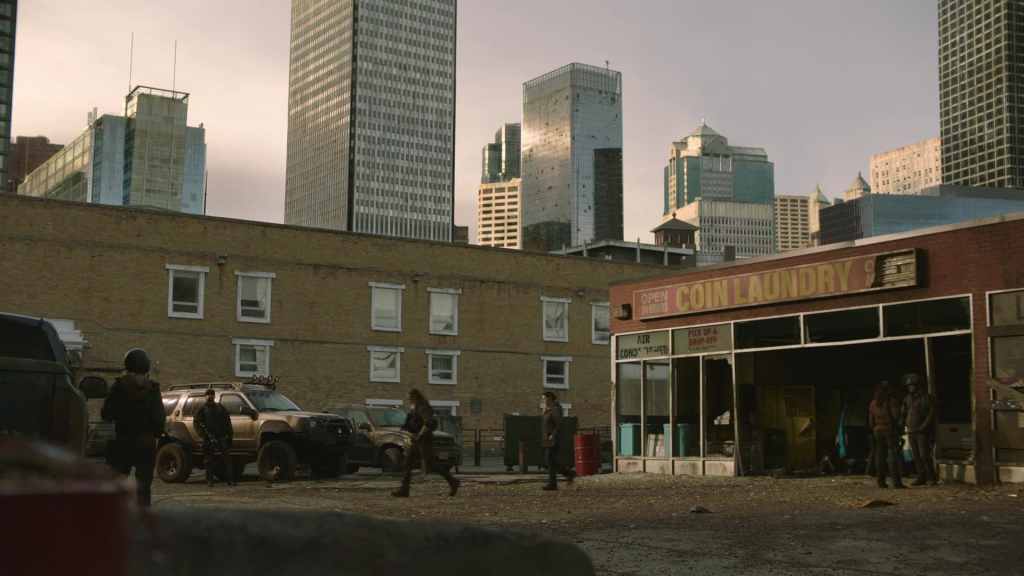
Pierce added that the personal impact the game had on crew members was an influence to these efforts, stating that, ‘[the crew] put their artistic touch in every detail on every set, and that as an artist, as an actor, you walk onto that and you think… well I’d better be good. Because everybody sweat and bled for a thousand hours before I got here and I need to do justice to that.’
Johnson mentioned God of War when asked if any other video games had evoked a strong emotional reaction in him similar to The Last of Us, another title that touches on impactful character drama and the nuances that exist between a parent and a child. Perhaps this is a testament to the impact exploring these themes can have on wider player bases.
For further analysis and reading on the HBO adaptation of The Last of Us, you can check out the following articles:
- A spoiler-free review of the entire first season of The Last of Us HBO TV series
- The Last of Us HBO TV series: Cast and Character Guide
- The Last of Us interview: Henry and Perry actors examine their work
- The Last of Us interview – Storm Reid on portraying Riley
Episode recaps and analysis:
- The Last of Us – Episode 1 Recap – ‘When You’re Lost in the Darkness’
- The Last of Us – Episode 2 Recap – ‘Infected’
- The Last of Us – Episode 3 Recap – ‘Long, Long Time’
- The Last of Us – Episode 4 Recap – ‘Please Hold to My Hand’
- The Last of Us – Episode 5 Recap – ‘Endure and Survive’
- The Last of Us – Episode 6 Recap – ‘Kin’
- The Last of Us – Episode 7 Recap – ‘Left Behind’
- The Last of Us – Episode 8 Recap – ‘When We Are in Need’
- The Last of Us – Episode 9 Finale Recap – ‘Look for the Light’
Behind-the-scenes podcast recaps:
- The Last of Us Podcast – Behind the Scenes of Episode 1 – ‘When You’re Lost in the Darkness’
- The Last of Us Podcast – Behind the Scenes of Episode 2 – ‘Infected’
- The Last of Us Podcast – Behind the Scenes of Episode 3 – ‘Long, Long Time’
- The Last of Us Podcast – Behind the Scenes of Episode 4 – ‘Please Hold to My Hand’
- The Last of Us Podcast – Behind the Scenes of Episode 5 – ‘Endure and Survive’
- The Last of Us Podcast – Behind the Scenes of Episode 6 – ‘Kin’
- The Last of Us Podcast – Behind the Scenes of Episode 7 – ‘Left Behind’
- The Last of Us Podcast – Behind the Scenes of Episode 8 – ‘When We Are In Need’
- The Last of Us Podcast – Behind the Scenes of Episode 9 – ‘Look for the Light’
The Last of Us is now streaming on HBO Max in the US, and Binge in Australia.
